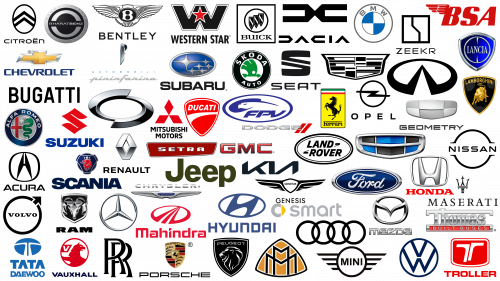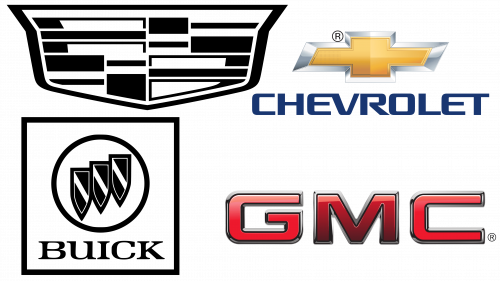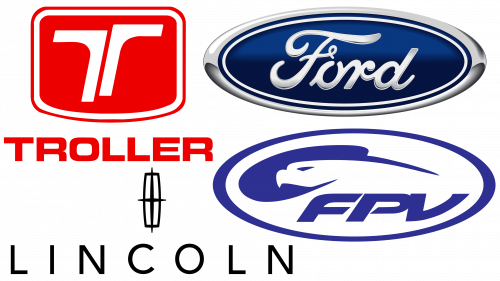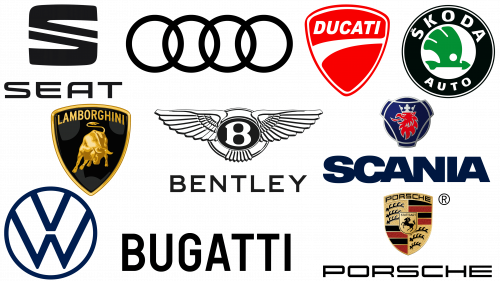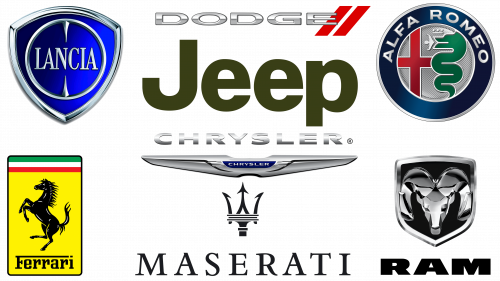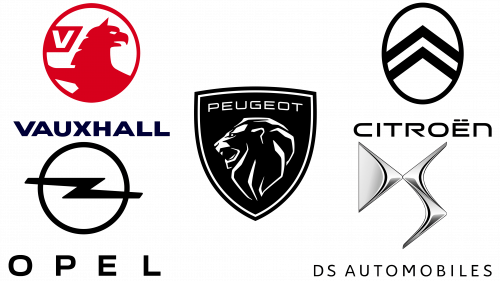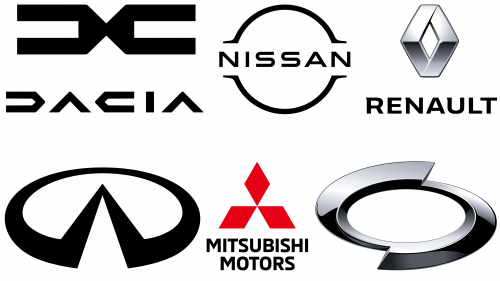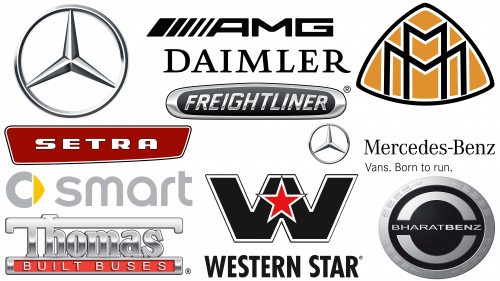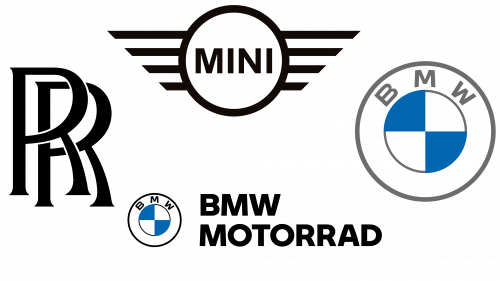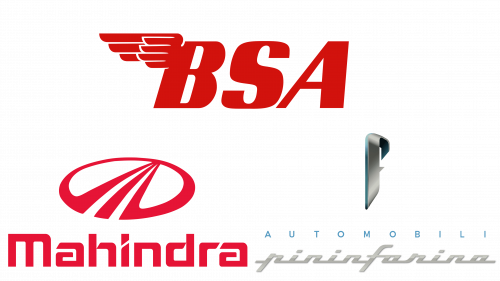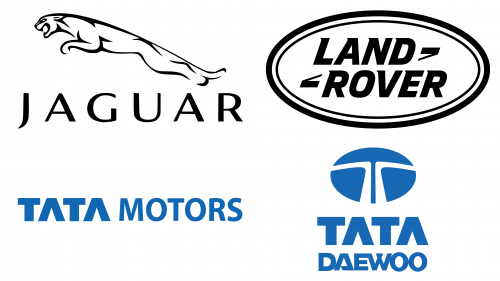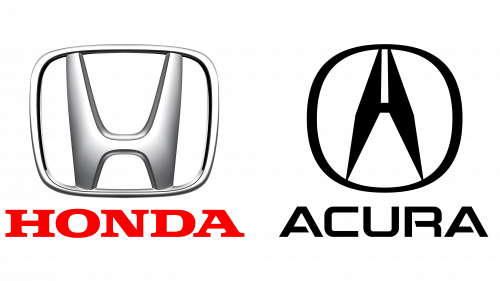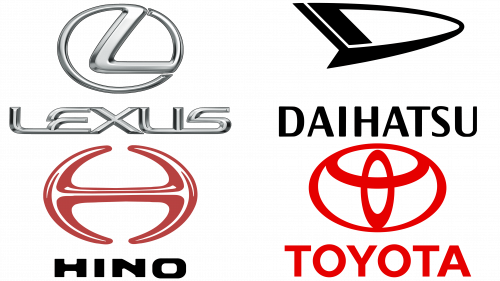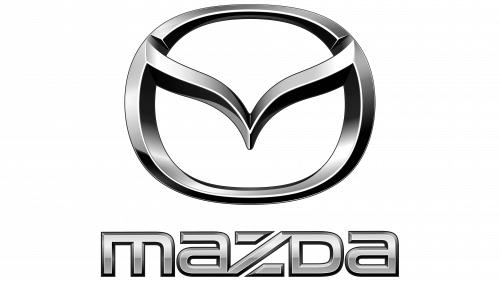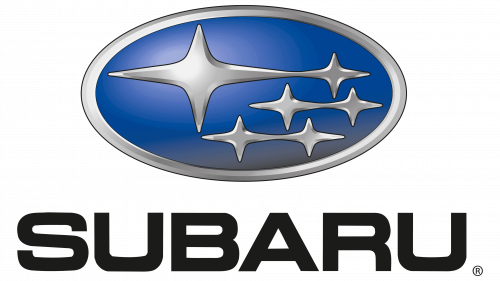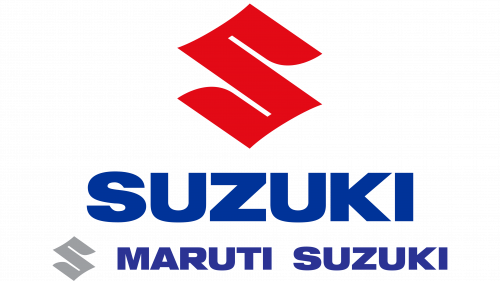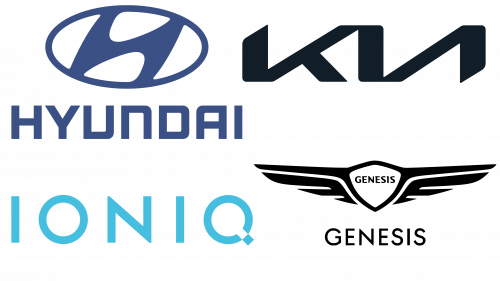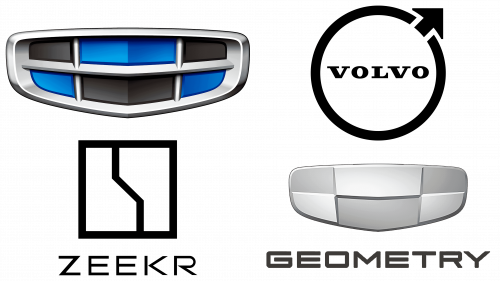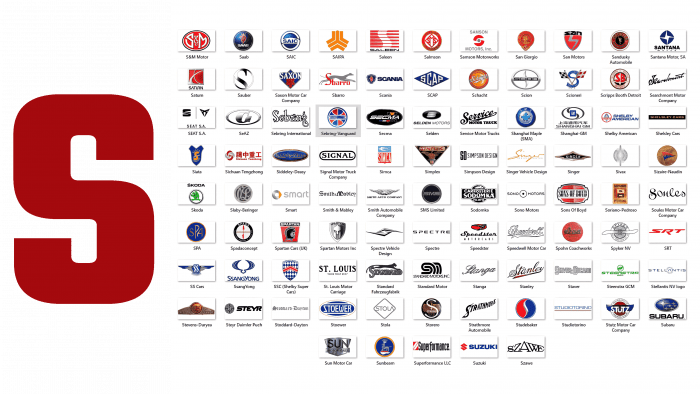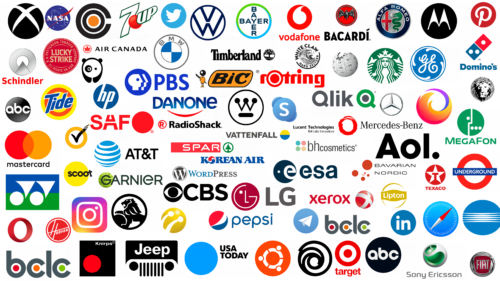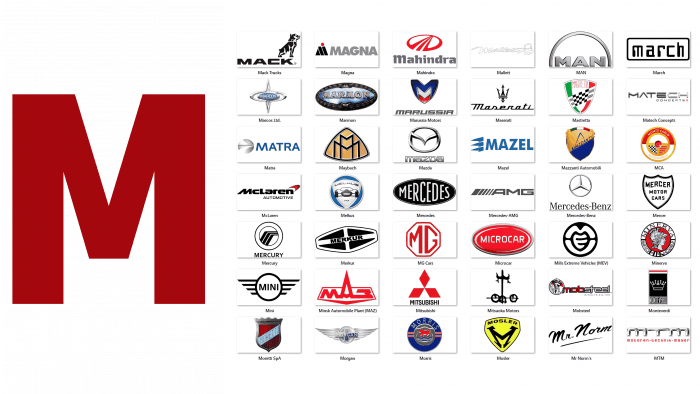The fate of legendary automakers is complex and unpredictable. In the last millennium, leading American automobile executive Lido Anthony Iacocca predicted the disappearance of many companies that produced their cars. Those predictions were for the early 21st century. And the legendary ex-manager of Chrysler and Ford was not mistaken: now only the most resilient players are left in the automobile market.
At the turn of the century, independent companies began to close or merge into alliances and groups. Some could not withstand the competition and declared bankruptcy, while others acted aggressively, seizing all those who could prevent their dominance on the world stage.
Hundreds of automobile brands sold in different countries do not exist autonomously but belong to certain manufacturers. In addition, there are just over a dozen large conglomerates. Among them are those who successfully overcame the crisis, anticipated customers’ needs, and promptly eliminated competitors from their path.
So, who are they – the legendary pillars of the automotive industry? Let’s try to understand the intricacies of the global market and find out who owns the most famous automobile brands.
American Automobile Concerns
With its rich history and enormous influence, the American automotive industry has long been a global pioneer in transportation innovation. With a history of more than a hundred years, American automobile companies have names with a sense of power, ingenuity, and cultural significance. From the roaring engines of muscle cars to the quiet hum of electric vehicles, American automobile concerns have been at the helm of innovation, design, and cultural transformation. Their legacy is a testament to American ingenuity, ambition, and resilience.
General Motors
General Motors, also known as GM, held leadership in the global automobile market for many years but lost the top spot to Japan’s Toyota Motor Corporation in 2008. It should be noted that the current company was legally created only in 2009 after a major reorganization. Its predecessor officially appeared in 1908. At the same time, it acquired its first brand – Buick. Now, it is one of the four largest divisions of GM, along with Cadillac, GMC, and Chevrolet.
In addition, General Motors owns stakes in several Chinese brands, such as Baojun and Wuling Motors. It also owns 60 percent of the U.S. company DMAX. But the automaker was not without losses. It lost Pontiac, Holden, Plymouth, Oldsmobile, Saturn, Hummer, Saab, and Opel.
- GM is now focusing on the remaining brands:
- GMC – North American brand of vans, pickup trucks, SUVs, and trucks.
- Chevrolet – mid-priced cars are positioned as being of quality and affordable.
- Cadillac is a luxury car brand popular in Canada and the United States. It is considered one of the oldest in the world.
- Buick is a premium car brand that started the North American automobile industry. It is widely represented in the United States and China.
Ford Motor Company
Ford Motor Company is one of the most successful, popular, and profitable automobile manufacturers in the United States. It is second only to General Motors in the country’s domestic market. The company’s history began in 1903, and for more than a hundred years, it has been under the constant control of the same family.
Ford included divisions that produced cars in different price ranges, from budget to luxury. These included brands such as Aston Martin, Land Rover, Lincoln, and Jaguar. However, after incurring losses, the manufacturer sold some of them to eventually survive the financial crisis of 2008 successfully.
Ford Motor Company Brands:
- Ford is the flagship brand of the company of the same name. It produces cars, buses, tractors, and military vehicles.
- Lincoln is a division that produces luxury cars. Its products are popular not only in America but also on other continents.
Previously, this list also included the following companies:
- FPV is an Australian car brand that existed for 12 years, from 2002 to 2014.
- Troller is a Brazilian manufacturer of SUVs. In 2021, it closed its factory and was liquidated.
European Automobile Concerns
European automakers have a rich history of fierce competition and impressive collaboration. These brands have defined luxury, performance, and innovation and shaped global automotive standards. With their legacies and contributions, these European automotive giants have played a pivotal role in shaping the global automotive market. From luxury sedans cruising the streets of Paris and London to supercars hurtling through the Italian and German countryside, European automobile concerns are all about innovation, luxury, design, and history.
Volkswagen Auto Group (VAG)
Volkswagen AG is among the leaders in the automotive market, remaining in the top ten for many years. This German conglomerate owns the flagship Volkswagen brand and many others. In 1965, it acquired Auto Union, from which the Audi brand was later separated. The next major acquisition came in 1986 when the target was a controlling stake in SEAT.
In the early 1990s, the Czech company Škoda, which originated from Laurin & Klement, became part of the VW Group. A few years later, the conglomerate absorbed Bentley, saving the French brand Bugatti from bankruptcy. It also acquired the popular Italian brand Lamborghini. In 2008, Volkswagen AG acquired a significant stake in bus and truck maker Scania; in 2012, it acquired nearly 50% of Porsche.
The largest German concern does not rest on its laurels—it continues to expand the list of brands it owns and increase production volumes. Therefore, its plants operate in more than 20 countries worldwide, including Asia, America, and Africa.
Volkswagen AG owns:
- Volkswagen – VAG’s flagship brand, known for its “people’s cars.”
- Ducati is a motorcycle brand that has been part of Audi AG since 2012. It produces powerful and high-speed motorcycles.
- Scania is an international corporation based in Sweden that produces buses, heavy trucks, and other commercial vehicles. It is part of the Traton group.
- Skoda is a well-known Czech brand of passenger cars, including electric crossovers, subcompact crossovers, city compacts, and golf-class cars.
- SEAT is a Spanish automaker with a history dating back to 1919. It owns the SEAT, Cupra, and Cupra Racing brands.
- Porsche is one of the most successful German automobile companies. It produces SUVs and luxury cars designed for comfort lovers.
- Bugatti is a French brand of racing cars, hypercars, supercars, and luxury cars. Offers the most expensive and luxurious models.
- Lamborghini is a brand of luxury SUVs and sports cars with Italian roots.
- Bentley is a British company that started with racing cars and then moved into luxury passenger cars.
- Audi is one of the best-selling luxury car brands, competing with Mercedes-Benz and BMW.
The list previously included MAN, one of the largest truck manufacturers in Europe. It disappeared in 2021 after merging with Traton.
FCA Concern
The transnational company Fiat Chrysler Automobiles N.V. existed from 2014 to 2021, after which it merged with PSA Group to form Stellantis Automotive Corporation. Before the full merger and acquisition, the FCA Group was known in the US and Italy, where its main divisions operated.
FCA US, which became Stellantis North America in 2021, owned brands such as Ram Truck Division, Jeep, Dodge and Chrysler. FCA Italy (Stellantis Italy from 2021) included the passenger car brands Lancia, Fiat Professional, Fiat, Alfa Romeo, and Abarth.
Thus, the Fiat Chrysler Automobiles N.V. group, which became Stellantis N.V. in 2021, included both American and Italian brands:
- RAM is a truck and van brand that emerged after the launch of the Dodge Ram full-size pickup truck.
- Lancia is a company known for its innovation and bold experimentation. It is also famous for winning numerous world rally championships.
- Ferrari is an Italian brand that produces fast cars and often participates in races.
- Maserati is a brand of sports cars and business-class cars for business people. Produces exclusive cars since 1914.
- Jeep is a legendary off-road vehicle based on an American military vehicle.
- Dodge is a brand of commercial and passenger cars in the mid-price range.
- Chrysler is the flagship brand of the Chrysler automobile company.
- Alfa Romeo is a brand of expensive premium-level cars. Its main advantages are stylish design and technological innovation.
Groupe PSA
Like the Italian-American Fiat Chrysler Automobiles, the French Groupe PSA existed until 2021. The two groups then merged to form the multinational corporation Stellantis. Before its merger with FCA, PSA was considered one of the largest European automakers after Volkswagen. It owned a huge list of car brands as it bought companies worldwide, from India’s Hindustan Ambassador to Britain’s Vauxhall Motors.
The first major acquisition was bankrupt Citroën. It was after its merger with Peugeot SA in 1976 that Groupe PSA was formed. In 1978, the company paid $1 for the bankrupt Chrysler Europe and replaced it with the Talbot brand. Another major milestone in PSA’s history was forming an alliance with General Motors in 2012.
Before the disappearance of Groupe PSA, giving way to Stellantis, it owned:
- Vauxhall is one of the UK’s oldest car brands, and it is twinned with Opel. It produces passenger cars and commercial vehicles.
- Opel is a German car brand sold in more than 60 countries.
- DS – French manufacturer of refined and technologically advanced cars for premium enthusiasts.
- Peugeot is a leader in the French automotive industry, offering a wide range of hatchbacks, sedans, station wagons, crossovers, plug-in hybrids, and electric cars.
- Citroen is an innovative car brand from France, celebrating more than a century.
Renault–Nissan–Mitsubishi Alliance
The Renault-Nissan-Mitsubishi Alliance is not a conglomerate but an agreement between three independent automakers. As a result of their strategic partnership, there has been no merger or takeover: Renault (France), Nissan (Japan), and Mitsubishi (Japan) still exist separately and cooperate as equal partners. However, it should be noted that Nissan owns a controlling stake in Mitsubishi. The companies have joined forces to lead the global market together.
The large Japanese-French alliance controls several automobile brands:
- Samsung Motors is a brand officially called Renault Korea Motors as of August 2022. It produces a variety of vehicles, including crossovers and electric cars.
- Renault – Groupe Renault’s flagship brand is known for its hatchbacks, station wagons, SUVs, pickup trucks, minivans, and commercial vehicles.
- Mitsubishi – moderately priced cars originally designed for the Japanese market only.
- Nissan is a brand of commercial and passenger vehicles known for its wide range of models.
- Infiniti is a brand of high-end luxury cars originating in Japan that is entering the global market.
- Dacia is Romania’s largest car company and was part of Renault’s Dacia-Lada business unit from 2021 to 2022.
Previously, this included the Lada brand, which focused on the budget segment. Renault parted ways with it in 2022 after Russia’s full-scale invasion of Ukraine. The Russian government now owns Lada.
Datsun, a Nissan subsidiary producing budget cars, is the second brand to disappear from the list. It was shut down in April 2022.
Mercedes-Benz Group (Daimler Group)
The Mercedes-Benz Group was known as Daimler AG until 2022; before that, it was DaimlerChrysler AG. The group was founded in 1926 and has been based in Germany ever since. It owns a wide range of automobile brands – from premium to budget. The company manufactures passenger, commercial, and commercial vehicles in various countries worldwide. Recently, it has decided to focus on producing electric vehicles.
Mercedes-Benz Group’s main brands are:
- Setra – German large and extra-large buses, including touring, intercity, urban, and commuter models.
- BharatBenz is an Indian brand of trucks and buses.
- Thomas Built Buses is an American bus brand that specializes in school transportation and sometimes produces intercity models.
- Mercedes-Benz is one of the most recognizable brands in the world. Its best examples are premium cars.
- Western Star manufactures heavy trucks with a payload of more than 15 tons.
- Smart – compact cars designed for urban conditions.
- Freightliner is the largest American brand of tractors, covers, and conventional trucks.
- M-Maybach is a sub-brand of Mercedes-Benz, which produces ultra-luxury cars based on the S-Class chassis.
- Mercedes-AMG is a division specializing in the production of high-speed cars. It produces powerful production models with improved handling and stability.
- Mercedes-Benz Vans is a full-service supplier of campers and light-duty vehicles. It specializes in electric vans.
- Daimler Trucks manufactures trucks and buses, one of the key divisions of the Mercedes-Benz Group.
BMW Group
German corporation Bayerische Motoren Werke AG, better known as BMW, manufactures cars not only in Germany but also in other European countries, as well as in South and North America, Asia, and Africa. With assembly plants located on five continents, the company is constantly working to produce luxury cars.
The company, founded in 1916, acquired several brands over the years. However, in 2000, it was forced to sell its Land Rover division, which was acquired in 1994.
BMW currently owns:
- BMW Motorrad is a brand of motorcycles for touring, sport, off-road and everyday use. There are also dual-purpose models.
- Mini is a British B-segment car brand. Most hatchbacks are characterized by high practicality, but other body variants exist.
- Rolls-Royce is an icon of luxury cars. The entire lineup is produced by Rolls-Royce Motor Cars Limited, a division of Rolls-Royce Motor Cars, founded in 2003 and unrelated to the original Rolls-Royce Motors.
- BMW is Bayerische Motoren Werke AG’s flagship brand.
Asian Automotive Concerns
Asia, with its rapidly developing markets and extensive production centers, has become a significant player in the global automotive arena over the past few decades. Asian automakers have successfully combined innovation, affordability, and reliability. These Asian automobile giants have made a mark in the global market by focusing on consumer needs, technological advancements, and adapting to the changing automotive world. From rugged SUVs designed for the Australian outback to electric sedans for the urban European streets, Asian automobile concerns demonstrate adaptability, innovation, and a keen understanding of global markets.
Mahindra & Mahindra Limited
Mahindra & Mahindra Limited (M&M) forms the backbone of the Mahindra Group conglomerate and leads the Indian tractor and truck market. In addition, this company manufactures buses, dump trucks, cars, motorcycles, and other types of vehicles. In 2010, Mahindra Electric Mobility Limited established an electric vehicle division.
M&M owns:
- Mahindra is a brand that has become popular for its agricultural equipment and commercial vehicles.
- BSA is a revitalized scooter and motorcycle manufacturer that is part of Mahindra Two Wheelers.
- Automobili Pininfarina is a luxury electric car brand hailing from Germany.
As for South Korea’s SsangYong, which was until recently owned by Mahindra & Mahindra, it was acquired by KG Mobility, a consortium led by KG Group, in November 2022.
Tata Motors
Tata Motors Limited is the automobile division of the ‘father of Indian industry’ Tata Group. It started by manufacturing locomotives, then shifted to commercial vehicles, and later, it produced its first passenger car. 2004, the company acquired the Daewoo Commercial Vehicles brand and turned it into Tata Daewoo. The next major acquisitions were Land Rover and Jaguar Cars, which were transferred to Tata Motors in 2008.
The automaker currently owns:
- Tata Daewoo is a South Korean truck brand.
- Tata is a brand of passenger cars manufactured under a joint venture with Stellantis.
- Jaguar – luxury cars from the UK. Tata Motors plans to make them all-electric.
- Land Rover – a brand of four-wheel drive SUVs.
Honda Motor Company
The Japanese conglomerate Honda invests heavily in research and development, so it produces innovative cars. In 2001, this manufacturer took second place among all Japanese automobile companies; in 2015, it took eighth place in the world market.
Honda’s main products are four-wheeled and two-wheeled cars. But the company does not stop there. It produces robotics, generators, jet skis, marine engines, and garden equipment.
As for car brands, Honda does not have many of them:
- Acura is a division specializing in high-performance luxury cars. It was created in 1986.
- Honda is the flagship brand of light trucks, SUVs, and cars. The company’s history dates back to 1963.
Toyota Motor Corporation
Japanese Toyota produces about 10 million cars a year and is considered one of the largest automakers in the world. The corporation includes many subsidiaries in different countries; for example, there are separate divisions for South Africa, Thailand, Pakistan, Indonesia, and Australia. In addition, Toyota owns a small share in Yamaha Motor Corporation, Isuzu, Suzuki, and Mazda, as well as 20% of Subaru Corporation and 25% of Denso.
As of 2022, the company fully owns only four brands:
- Toyota has dozens of models in various classes, mostly passenger sedans.
- Lexus is a luxury car brand designed to compete with Infiniti and Acura.
- Hino is a Japanese truck and bus brand that is used for various purposes.
- Daihatsu is a well-known Asian manufacturer of kei vans, kei trucks, and kei light trucks.
Mazda Motor Corporation
Japan’s Mazda, formerly Toyo Cork Kogyo Co., Ltd., manufactured container stoppers. It produced its first automobile in 1931, a three-wheeled version of a rickshaw. In 1974, the company started collaborating with Ford. They had many joint projects until 2015 when the manufacturers went their separate ways.
Now Mazda Motor Corporation owns:
- Mazda is the flagship brand of passenger cars, and a favorable price-quality ratio characterizes it.
Subaru Corporation
Subaru Corporation was established in 1953 and was known as Fuji Heavy Industries, Ltd. until 2017. It is a leading supplier of railroad, aerospace, and military equipment in Japan. However, passenger cars and commercial vehicles account for most of its sales.
The automotive division of Subaru Corporation is currently represented by only one brand:
- Subaru is a reliable, safe, and dynamic vehicle assembled in Japan.
Suzuki Motor Corporation
Suzuki is another major Japanese automaker. It leads in sales both in the domestic and global markets as it produces fuel-efficient cars that meet all safety requirements. However, the automobile division of the company appeared only in 1961. Before that, it produced only engines, bicycles, and looms.
Suzuki Motor Corporation includes:
- Suzuki is the flagship brand that is leading the market for affordable, high-quality automobiles.
- Maruti is one of the largest automobile brands in India.
Hyundai Motor Group
Hyundai Motor Group is a South Korean chaebol involved in automotive, railroad manufacturing, mining, finance, and other business sectors. It was established in 1998 when Hyundai Motor Company acquired a controlling stake in Kia Corporation. Kia is now only one-third owned by Hyundai.
The conglomerate is based on the following automobile brands:
- Hyundai – reliable and ergonomic transportation for everyday use.
- Kia is an automobile brand developed based on Hyundai but with its unique features.
- Genesis is a luxury brand recognized as the most reliable and innovative in the North American auto market.
- Ioniq – an electric car sub-brand being developed in 2020.
Zhejiang Geely Holding Group Co., Ltd (ZGH)
The Chinese company known as Geely originally made refrigerators and motorcycles. 1998, it started producing vans and passenger cars, but only in 2002. Since then, ZGH has sold them under its trademarks: Zeekr, Maple, Geometry, and Geely Auto.
The holding gained fame in 2010 when it bought the Swedish Volvo Cars. Seven years later, it acquired British sports car brand Lotus (51% stake) and Malaysian Proton (49.9% stake).
Zhejiang Geely Holding Group now owns the following companies:
- Geely Auto – the original ZGH brand. 2014, it merged cars previously produced under the Shanghai Maple, Gleagle, Englon, and Emgrand brands.
- Zeekr is a premium electric car brand. Founded in 2021 to compete with Tesla.
- Maple is an electric car brand based on Geely’s gasoline-powered cars. Relaunched in 2020.
- Geometry is a brand of electric crossovers, sedans, and SUVs. The Chinese name is Jihe.
- Volvo is a brand owned by Ford Motor Company until 2010. It has announced its intention to switch completely to electric cars by 2030.
Which brand belongs to whom?
The automotive industry is sensitive to everything that happens worldwide, from discovering new energy sources to economic crises. Global events affect small manufacturers and large corporations, which are forced to adapt to modern realities. They actively sell and buy brands or merge to stay afloat.
Aston Martin Lagonda: Aston Martin and Lagonda.
BMW Group: BMW, Rolls-Royce and Mini.
Ferrari N.V.: Ferrari.
Ford Motor Company: Ford and Lincoln.
General Motors: GMC, Chevrolet, Buick, and Hummer.
Honda Motor Co: Honda and Acura.
Isuzu Motors: Isuzu.
Groupe PSA: Peugeot, Citroen, Opel and DS Automobiles.
Hyundai Motor Group: Hyundai, Kia, and Genesis.
Mazda Motor Corporation: Mazda.
McLaren Automotive: McLaren.
Mercedes-Benz Group: Mercedes-Benz and Smart.
NIO Inc: NIO.
Renault-Nissan-Mitsubishi Alliance: Renault, Nissan, Mitsubishi and Infiniti.
Rivian Automotive: Rivian.
SAIC Motor: MG, Maxus, Roewe and Yuejin.
Stellantis: Alfa Romeo, Dodge, Chrysler, Fiat, Maserati, Jeep, Ram, Citroën, Opel, Vauxhall, Peugeot, DS Automobiles and Abarth.
Subaru Corporation: Subaru.
Suzuki Motor Corporation: Suzuki.
Tata Motors: Jaguar and Land Rover.
Tesla Inc: Tesla.
Toyota Motor Corporation: Toyota, Lexus, and Daihatsu.
Volkswagen Group: Volkswagen, Audi, Skoda, Seat, Bentley, Bugatti, Lamborghini, MAN, Seat, Scania and Porsche.
Zhejiang Geely Holding Group: Volvo, Polestar, and Lotus.
